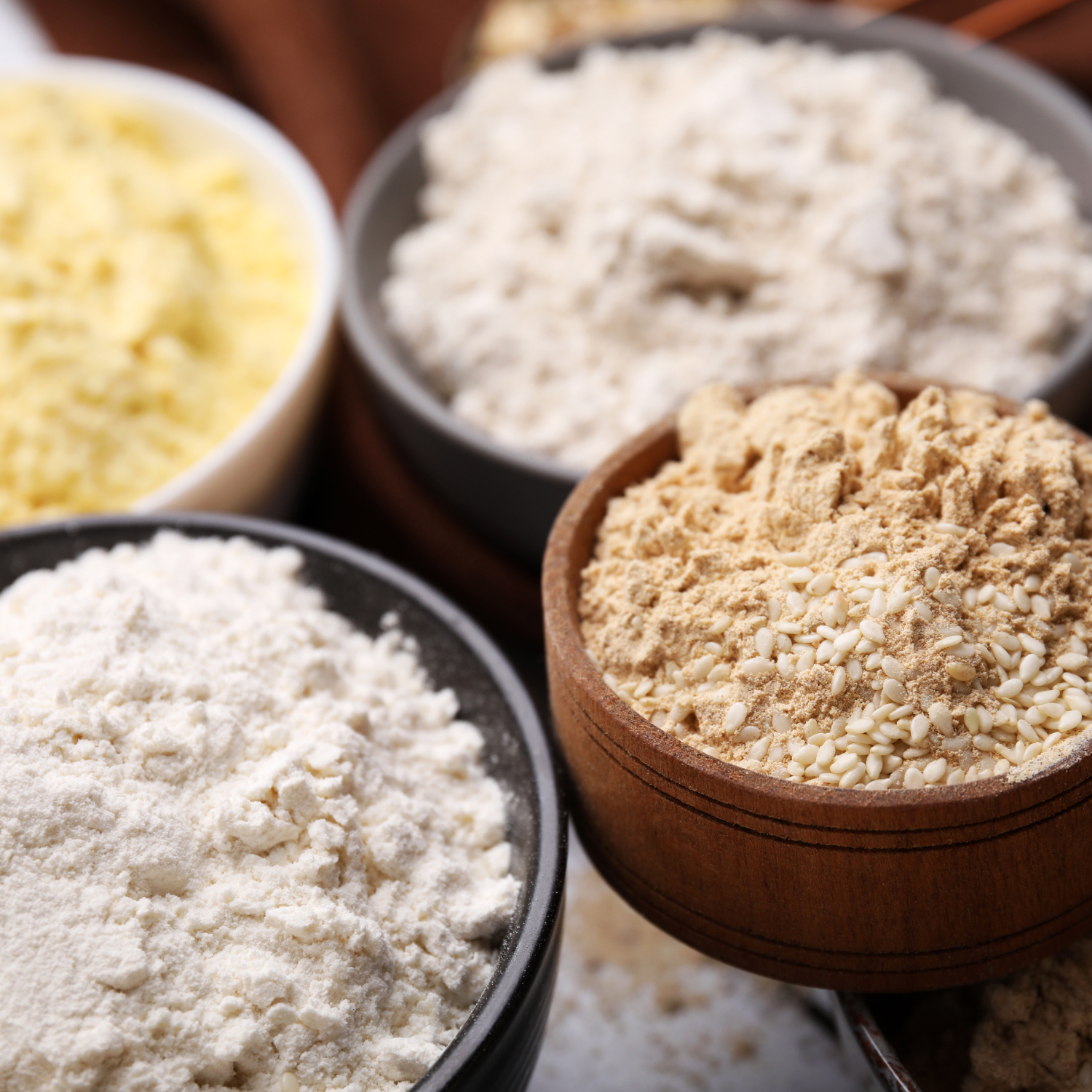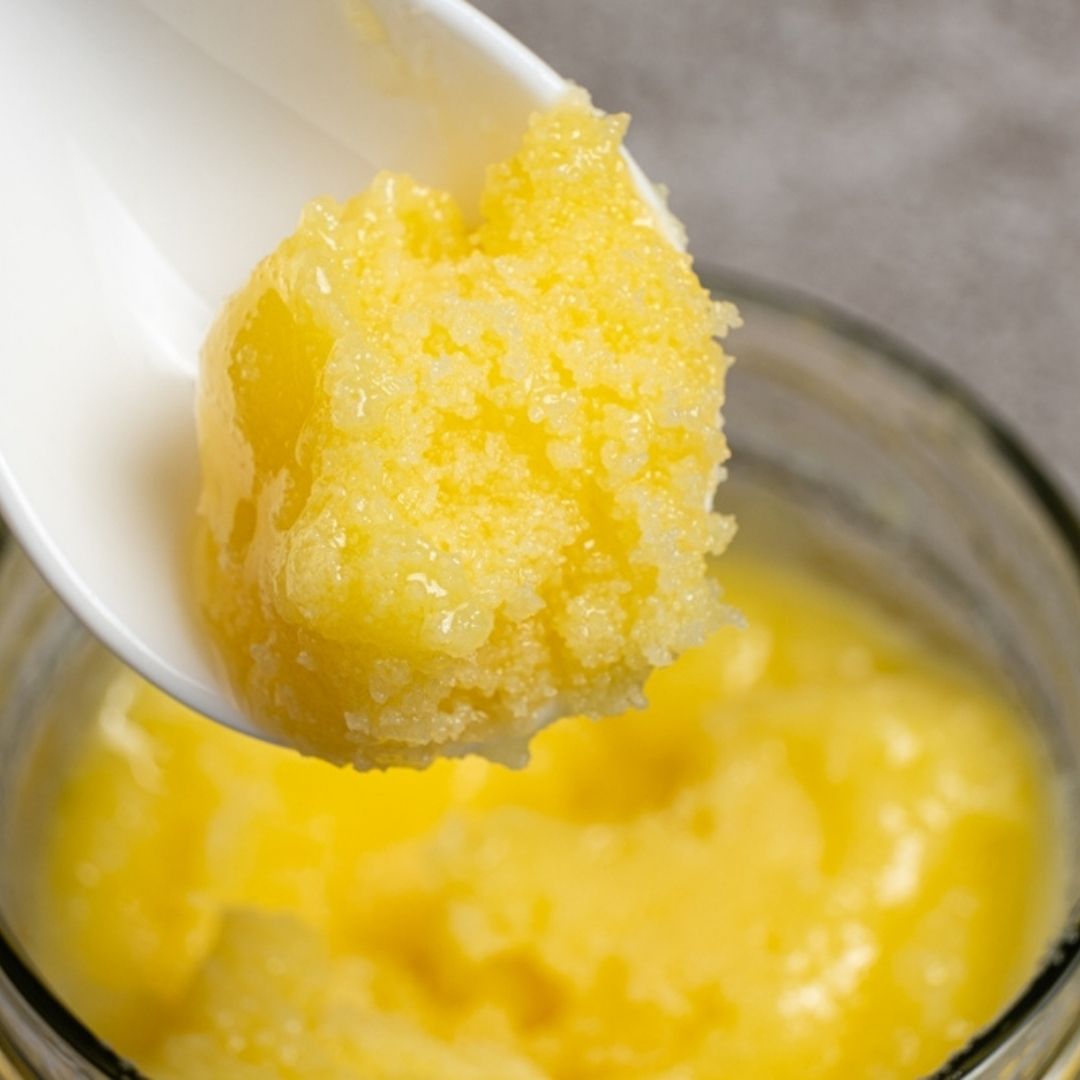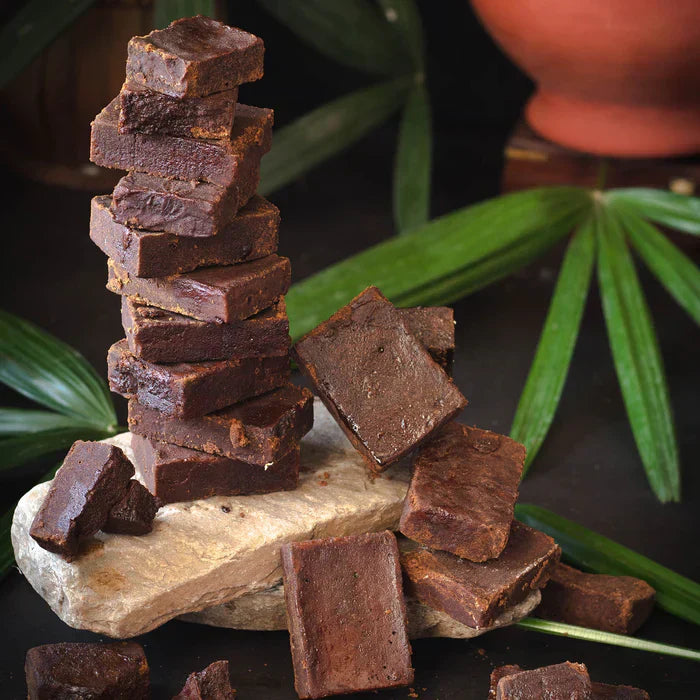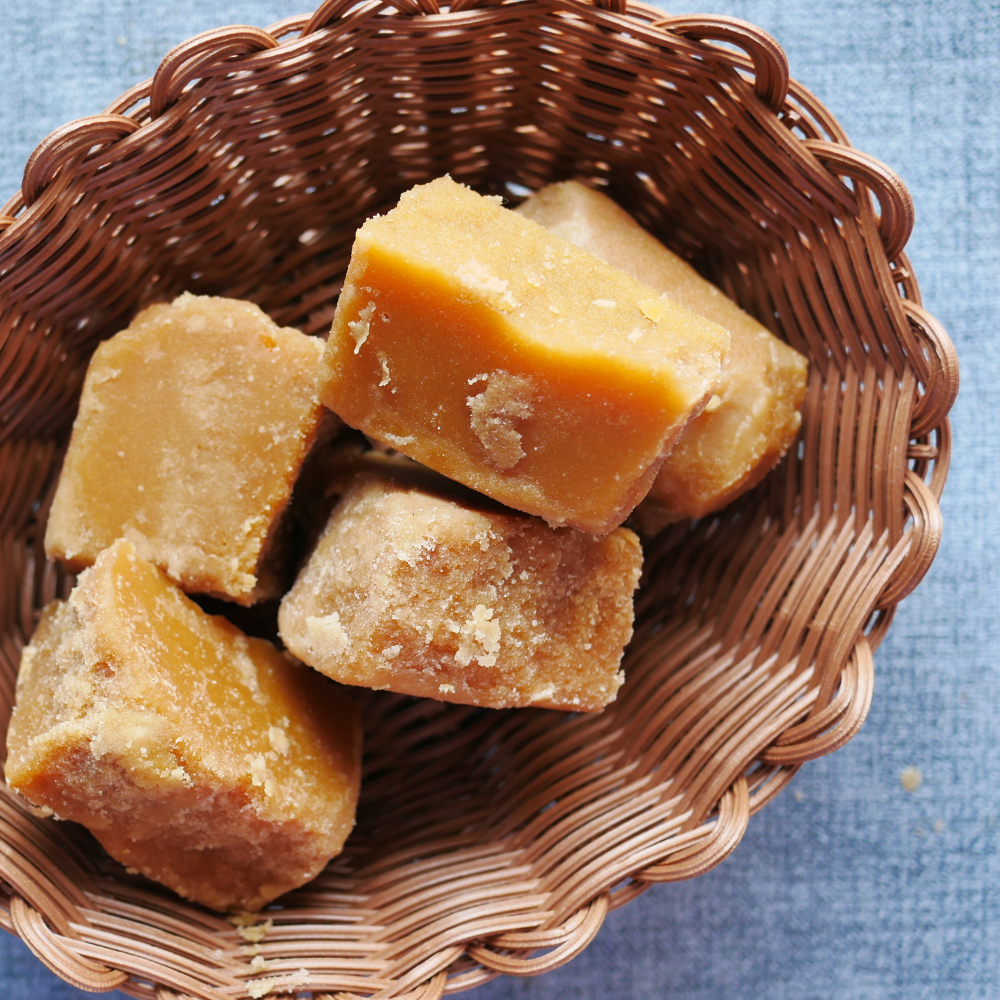The use of coconut oil for weight loss has grown in popularity recently because of its possible health advantages. Gaining insight into the impact of coconut oil on weight loss can significantly transform your path to a more nutritious way of living. This comprehensive book explores the science behind coconut oil's weight management advantages, covering everything from its effect on metabolism to useful advice for incorporating it into your diet. Prepare to investigate the fascinating connection between coconut oil and successful weight loss techniques.

Knowing Coconut Oil and Its Advantages for Losing Weight
Because coconut oil contains a special blend of medium-chain triglycerides (MCTs), it has been shown to have substantial weight loss advantages. The body metabolizes these MCTs differently, which encourages higher energy expenditure and fat burning. Coconut oil also aids in improving overall body composition and lowering belly fat. It helps control weight because of its thermogenic impact, which increases metabolism. Coconut oil is a great complement to a balanced diet because its saturated fats, such lauric acid, can also have a good effect on heart health and cholesterol levels.
The Science of Using Coconut Oil as a Loss Control Agent
The medium-chain triglycerides (MCTs) in coconut oil are responsible for its effectiveness in helping people lose weight. These special fatty acids are digested in a distinct way, moving directly to the liver to produce ketone bodies or quickly convert energy. Increased calorie burning and metabolism are two benefits of this technique. According to research, MCTs may help with weight loss by reducing the buildup of fat and enhancing insulin sensitivity. Additionally, lauric acid in coconut oil could have antibacterial qualities, thereby aiding overall health and weight maintenance.
Explaining the Various Types of Coconut Oil
It's critical to comprehend the various varieties of coconut oil. Refined coconut oil goes through processing, however virgin coconut oil is unprocessed and maintains more nutrients. Fractionated coconut oil is another variety that remains liquid at room temperature. The best kind to choose will depend on your needs and intended culinary application as each version has benefits and uses. Knowing the differences might help you make wise decisions when it comes to using coconut oil for weight loss.
The Impact of Coconut Oil on Your Metabolism
Medium-chain triglycerides (MCTs) from coconut oil influence metabolism because they are quickly absorbed by the body and transformed into energy. MCTs increase metabolic rate, which helps with weight loss. In contrast to other fats' long-chain fatty acids, MCTs are effectively digested. This procedure might boost fat burning and energy expenditure, which could help with weight loss. You might get a metabolic boost from eating coconut oil, which will affect how your body uses and processes energy.
Medium-Chain Triglycerides (MCTs): Their Significance in Enhancing Metabolism
Coconut oil's medium-chain triglycerides (MCTs) are essential for accelerating metabolism. MCTs, as opposed to long-chain fatty acids, are quickly absorbed by the liver and transformed into energy, which increases calorie expenditure. This procedure has the potential to increase metabolic rate and support weight loss initiatives. MCTs' ability to support a healthy metabolism has been further bolstered by their association with enhanced fat oxidation and heightened sensations of fullness. Including MCT-rich coconut oil in your diet could help you manage your weight through improved metabolism.
Comparing Coconut Oil with Other Fats: What Sets It Apart?

Find out what makes coconut oil unique among fats. Discover how coconut oil differs from other fats in that it can aid in weight loss due to its high quantity of medium-chain fatty acids and thermogenic qualities. Discover the special advantages of coconut oil over traditional fats.
How to Use Coconut Oil in Your Diet in Easy Ways
To add a touch of tropical taste, start by sautéing veggies or frying eggs in coconut oil. Smooth it into smoothies or spread it as a butter substitute over toast. For an extra burst of energy, put a teaspoon into your porridge or add it to your daily coffee. Use coconut oil to make your own homemade salad dressings or as a sweet topping for popcorn. Make these easy substitutions to liven up your food and take advantage of coconut oil's weight loss properties.
Beginning with Tiny Amounts: What's Sufficient?
Start with 1-2 tablespoons of coconut oil every day to start reaping the advantages. To avoid stomach problems, start out slowly and increase as much as is tolerated. For best outcomes when attempting to lose weight, use moderation.
Innovative Methods for Using Coconut Oil in Baking and Cooking
When baking and cooking, use coconut oil to create tasty and healthful meals. For a flavorful and filling snack, try creating coconut oil granola clusters or using it to sauté vegetables. Use it to produce crispy, golden-brown roasted veggies or bake moist, delicious banana bread. Try substituting coconut oil for butter or other oils in your favorite recipes to experience the distinct flavor and health advantages it offers.
Including Coconut Oil in Your Drinks
A tasty method to accelerate your weight loss journey is to add coconut oil to your drinks. All it takes to get healthy saturated fats in your coffee or smoothies is to blend a teaspoon of virgin coconut oil into it. Coconut oil's medium-chain fatty acids can help with weight management by increasing sensations of fullness and promoting fat burning. Adding coconut oil to your daily routine can be a simple yet useful addition, whether you use it for hot or cold beverages.
Optimizing Loss of Weight: Advice and Techniques
Remember to use coconut oil for weight reduction by timing your intake throughout the day. For best effects, combine its advantages with other weight loss strategies like exercise. To speed up your metabolism, take a teaspoon of coconut oil first thing in the morning. If at all feasible, use coconut oil in place of conventional cooking oils for best results. Try incorporating it into your drinks or baking to get a variety of uses. If you want to see long-lasting weight loss results, be patient and consistent.
To get the most out of using coconut oil in your weight loss program, pair it with other proven strategies. Combined with a well-balanced diet high in whole foods and consistent exercise, coconut oil use can improve weight loss results. Moreover, combining coconut oil with mindful eating or intermittent fasting can accelerate metabolism and encourage fat loss. Combining coconut oil with complementing weight-loss techniques will help you reach your health objectives in a comprehensive way.
Recognizing the Dangers and Issues
Even though coconut oil has demonstrated significant advantages for weight loss, it's critical to comprehend the dangers and factors to be aware of when consuming it.
Potential Adverse Reactions from Consuming Too Much Coconut Oil
When used in moderation, coconut oil can be healthy, but consuming too much of it might have negative effects. Large consumption of coconut oil can raise cholesterol levels because of its high saturated fat content, especially LDL cholesterol, which is regarded as the "bad" cholesterol. It's crucial to remember that each person will react differently to coconut oil in terms of cholesterol levels.
An increase in HDL cholesterol, or "good" cholesterol, is a possibility for certain people. To completely comprehend coconut oil's impact on cholesterol levels, more research is necessary. It is advised to use coconut oil sparingly and to take cholesterol levels and specific medical problems into account.
Who Needs to Stay Away from Coconut Oil?
For many people, coconut oil can be a nutritious complement to a balanced diet, but for others, it should be avoided or used sparingly. Consuming coconut oil may necessitate caution for people with specific medical issues, such as high cholesterol or pre-existing heart disease. For these people, the high saturated fat content of coconut oil may raise their risk of heart disease. Furthermore, some people could experience adverse reactions or be allergic to coconut. Before including coconut oil in your diet, it's crucial to speak with a healthcare provider, particularly if you have any known sensitivities or underlying medical concerns.
Choosing Premium Coconut Oil to Help You Lose Weight
To optimize coconut oil's potential advantages for weight loss, choose premium coconut oil. Less processing occurs in virgin or extra virgin coconut oil, preserving more nutrients, such as MCTs, which support weight loss. To make sure the coconut oil is devoid of pesticides and genetically modified materials, look for organic and non-GMO certifications. Expeller-pressed or cold-pressed coconut oil is a great option because it doesn't require heat or other chemicals to maintain nutrients. Think about the coconut oil's origin and select reputable brands that provide details about their sourcing and manufacturing processes.
Is Virgin or Refined Better for Losing Weight?
Virgin coconut oil is often seen to be a preferable choice when choosing coconut oil for weight reduction. Because virgin coconut oil isn't as refined, it has more nutrients—like MCTs—that can help with weight loss. It is a well-liked option for baking and cooking because of its unique flavor and aroma. Conversely, refined coconut oil goes through more processing and could not have as many healthy components. Refined coconut oil, on the other hand, is better for cooking at high temperatures because of its greater smoke point and softer flavor. The decision between virgin and refined coconut oil ultimately comes down to taste and preferred cooking techniques.
Perusing Labels: Recognizing Real, Superior Coconut Oil
It's crucial to read labels when choosing real, premium coconut oil to help with weight loss. Seek for coconut oil that is low in ingredients and devoid of artificial flavors, hydrogenated fats, and additives. The only ingredient in pure coconut oil should be coconut oil. To further guarantee that the coconut oil is devoid of pesticides and genetically modified materials, search for organic and non-GMO certificates. Coconut oil that has been expeller- or cold-pressed keeps more of its nutrients. Think about where the coconut oil comes from and select brands that are transparent about their sourcing and production processes.
Conclusion
In conclusion, because of its special qualities, coconut oil might be a useful complement to your weight loss journey. You may optimize its benefits by knowing the science behind how it impacts metabolism and finding innovative ways to include it in your diet. But it's important to pay attention to the quality of coconut oil you select and take into account any possible negative effects or contraindications. Success stories from real people attest to the beneficial effects of coconut oil on weight loss when used sensibly. To get specific advice if you're thinking about including coconut oil in your weight loss regimen, speak with a healthcare professional.
Frequently Asked Questions
Can I consume coconut oil and still adhere to other diet regimens?
It is possible to combine coconut oil with various diet regimens. It is crucial to include coconut oil in a diet that is well-balanced and full of a range of foods high in nutrients. When used sparingly as part of a diet that emphasizes health, coconut oil can help with weight loss and offer other health advantages.
How long does it take to start losing weight when using coconut oil?
Each person will experience weight loss with coconut oil at a different pace. It is crucial to remember that losing weight is a slow process that is influenced by a number of variables, including personal metabolism, exercise regimen, and general nutrition. Long-term weight loss outcomes and general health advantages can be attained by using coconut oil consistently as part of a balanced diet and healthy lifestyle.







